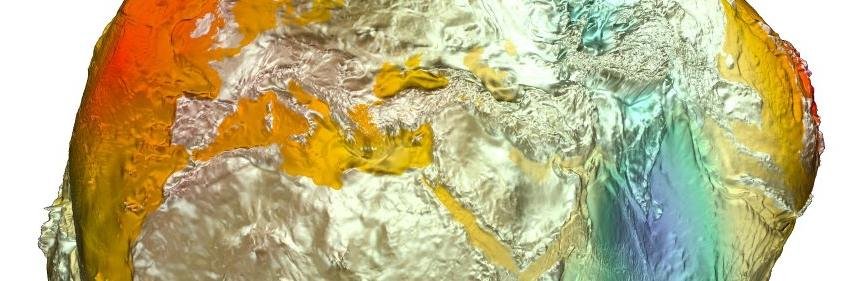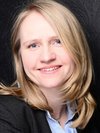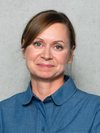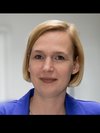


PhD position "Carbon budget of fluvial landscapes in the Anthropocene“ (f_m_x)
Reference Number 8172
'Impact of anthropogenic disturbance of river systems on the carbon budget of fluvial landscapes – towards sustainable landscapes'
We seek a highly motivated student to investigate the effects of human disturbance of European fluvial landscapes during the Common Era (the last 2000 years) on biogeochemical cycles, in particular the carbon cycle, and to explore the use of these landscapes to optimise carbon dioxide drawdown. Landscapes can store carbon, fixed through photosynthesis by plants, in soils and sediments. This stable carbon can become a long-term sink for atmospheric carbon when it is transferred by rivers into geological basins (such as deep ocean sediment). For several thousands of years, humans have been engineering fluvial landscapes to make them more efficient for agriculture and transport. While these activities alter biogeochemical fluxes, their effect on the carbon cycle is unquantified.
This project will aim at quantifying the effect of human engineering of the Elbe and Oder river systems, two prominent rivers in Germany and Poland. This will be done with a diverse set of tools, from sedimentology, geomorphology, organic and inorganic geochemistry on fluvial sediments and marine archives to trace changes in carbon sourcing, stabilization and transformation during periods of major human disruptions. The outcome will be a model predicting the effect of human landscape engineering on the carbon budget of that landscape.
As a doctoral researcher, your challenges will be to develop a sampling strategy along the river systems, to organize and carry out fieldwork and to conduct geomorphological, organic and inorganic geochemical analyses. In particular, you will exploit biomarker compounds that originate from land plants and their radiogenic carbon and stable carbon hydrogen isotope ratios to detect changes in carbon sourcing. In addition, quantitative geomorphological analyses using DEMs, UAV and remote sensing data and geoelectric surveying will be used to map and quantify sediment volumes. Importantly, you will consider your results in the context of historical constraints on human land use.
Your responsibilities:
- Perform sedimentological, geomorphological, organic and inorganic geochemical analyses on fluvial and potentially marine sediment archives
- Extract, purify and analyse terrestrial biomarkers and their radiogenic and stable carbon and hydrogen isotope ratios to trace carbon through the landscape
- Obtain a detailed understanding of the natural processes and human perturbations that alter the carbon budget of a fluvial landscape
- Publish key results in international journals and present them at scientific meetings
Your qualifications:
- MSc degree (or equivalent) in the (bio)geosciences (geology, physical geography, environmental sciences, geoecology or related fields), with evidence of excellence in guided research
- An ability to quickly grasp scientific concepts and place detailed information and observations in a wider context
- A talent for combining techniques and insights from different disciplines, and a keen interest in carbon cycling and feedback processes within the carbon cycle
- Experience in sediment coring, sampling and geochemical analysis is an advantage
- Very good English skills, both written and spoken
- High motivation and creativity as well as a result-oriented, structured and independent working attitude
- Willingness and ability to work in a diverse, interdisciplinary and international team
- Excellent communication skills
What we offer:
- Ambitious and varied tasks in a dynamic and international research environment
- State-of-the-art equipment
- Public service benefits
- Extensive training opportunities
- Professional career advice offered by our in-house Career-Centre
- Flexible working hours and conditions
- Support with finding a good work-life balance offered by benefit@work
- Institute day-care centre on site
- Working at the Albert Einstein science park on the Telegrafenberg in Potsdam
- Work place within walking distance of Potsdam main train station, or just a short ride on the shuttle bus
Fixed-term: 3 years
Salary: The position is classed as salary group 13 according to “TVöD Bund (Tarifgebiet Ost)”. The salary group is determined on the basis of the Collective Wage Agreement and the respective personal qualifications.
Working hours: Part-time 75% (currently 29.25 h/week)
Place of work: Potsdam
Have we piqued your interest?
Diversity and equal opportunities are integral components of our human resources policy. The GFZ actively promotes diversity and explicitly welcomes applications from all qualified individuals, regardless of ethnic and social origin, nationality, gender, sexual orientation and identity, religion/belief, age and physical characteristics. Anyone who has been recognized as severely disabled, will be given preferential consideration in the event of equal suitability and qualification in accordance with the provisions of the German Social Code IX. If you have any questions, please contact our representative for the severely disabled at sbv[at]gfz-potsdam.de, who will be happy to assist you in the further application process. In case of further queries regarding gender equality, please do not hesitate to contact our Equal Opportunities Officer at gba[at]gfz-potsdam.de.
Your personal data will be processed for the purpose of conducting the selection procedure on the basis of Art. 6 para. 1 b, Art. 88 GDPR in conjunction with Art. 26 of the Data Protection Act for the State of Brandenburg. After completion of the procedure, application documents will be deleted in compliance with data protection regulations.




